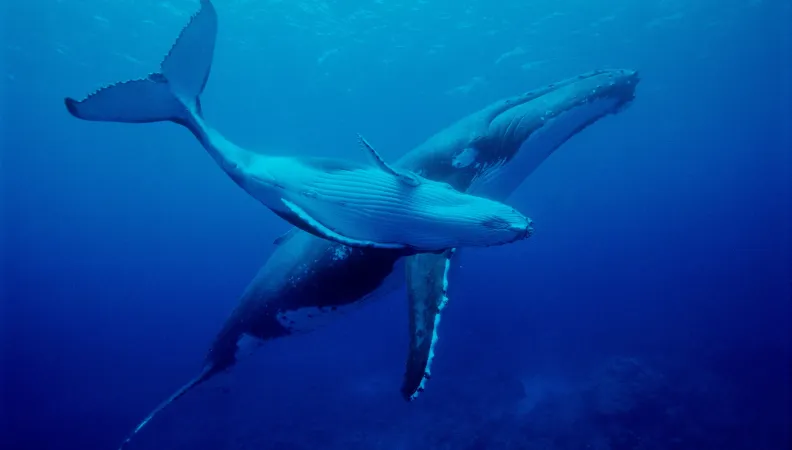Share the page
The FFEM at the One Ocean Summit 9 - 11 February
Published on

The FFEM will be participating alongside its partners in a number of events at the Summit.
From 9 - 11 February, France is proud to be hosting the One Ocean Summit in Brest on the north-western tip of France, bringing heads of State and government representatives from around the world to the shores of Brittany. The aim of the Summit is to raise the ambitions of the international community around maritime concerns, and to turn those into concrete actions.
Some thirty events, workshops, debates, meetings and initiatives will take place in advance of the high-level meeting to mobilise the whole international maritime community. These will cover a range of globally important topics, to address the ocean's many challenges in all their complexity and propose real solutions.
Since its creation, the French Facility for Global Environment has been working to enhance our understanding of the ocean and the resilience of aquatic ecosystems. Over 25 years, it has financed more than 80 projects dedicated to their conservation, and committed almost €100 M.
The FFEM at the Summit
The FFEM will be at the Summit for the launch of a project to combat underwater noise pollution, alongside the Wildlife Conservation Society (WCS) and Brest-based start-up Quiet Ocean, as part of the Blue Hotspot “Turning down the sound?” taking place at 10h45 on Thursday, 10 February at the Ateliers des Capucins.
Alongside experts and partners, including the Agence française de développement (AFD), the FFEM will also be involved in a discussion session on the governance of the high seas and protection of biodiversity, organised on the Océanopolis site in partnership with the University of Western Brittany, Océanopolis, the French Biodiversity Agency and Infusion, and streamed live on Thursday 10 February at 18h30.
Flagship projects
The FFEM will leverage the summit to showcase and disseminate solutions emerging from the flagship projects it finances and supports, for the better management, protection and resilience of the ocean. These include:
- The project “Developing hybrid governance to protect and manage special areas of the high seas” which aims to help protect the Thermal Dome and Sargasso Sea sites through better understanding of these ecosystems, by developing proposals for setting-up conservation and management mechanisms to improve their governance. The outcomes will help inform future agreements on marine biodiversity in areas outside national jurisdictions.
- The project "Conservation and sustainable usage of seamounts in the south-west Indian Ocean in areas outside national jurisdiction" has improved the state of knowledge on seamounts, reinforced the body of governance relating to fishing and to mining exploration and operations, and proposed concrete measures for the conservation and management of deep marine ecosystems.
- Initiated in 2016, the project “Oceanic plankton, climate and development” for the Tara Expedition Foundation has helped to raise awareness of the importance of planktonic ecosystems both for their role in the carbon pump as well as in fishery management. The project has delivered notable advances in the understanding of the marine microbiome and developed a new methodology for identifying ocean areas of high biological importance, so-called planktonic “hotspots”.
- Meanwhile, the FFEM’s Mangrove Initiative is supporting projects to restore the ecological functions of mangroves and their natural regeneration. Green and grey ecological engineering solutions offer a combination of infrastructure and soft solutions, providing effective, sustainable adaptation to climate change. This initiative brings together 3 projects across 5 countries.
